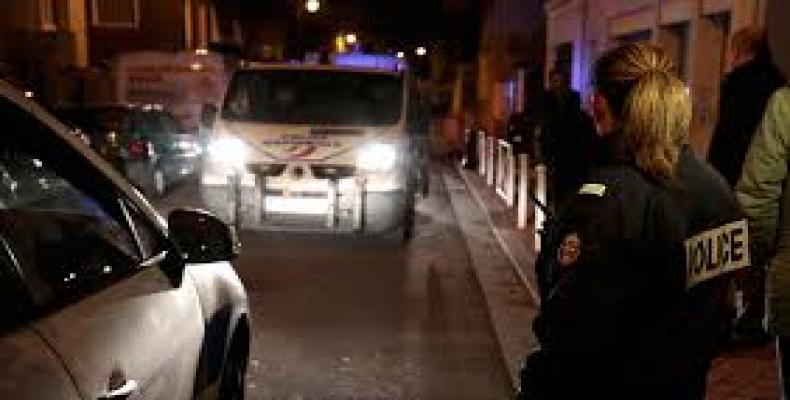Berlin, November 16 (RHC)-- German police have carried out more than 200 raids against mosques, apartments and offices across 10 federal states in search for suspected members of an alleged extremist group.
According to reports from Berlin, hundreds of German security forces stormed religious centers and residences to arrest members of the banned "The True Religion." German Interior Minister Thomas de Maiziere told reporters that the sweeping raids included sites in at least 60 cities, particularly in western Germany, but no arrests were made. De Maiziere said documents and files belonging to the group had been confiscated.
The group, commonly known as "Read (it)," is accused of attempting to glorify militancy and urging young people to travel to Syria and Iraq to fight alongside the notorious Daesh terror group. De Maiziere said the group was propagating hate messages and radicalizing young people.
The widespread operation came a week after German authorities announced that they had arrested five men suspected of recruiting terrorists for Daesh.
In May, German intelligence services said that of a total of 820 nationals who had left Germany for Syria and Iraq to join Daesh and other terror groups, one-third had returned and 140 were killed abroad. An estimated 420 German militants remain in the two Arab countries.
Wahhabism, the radical ideology dominating Saudi Arabia, which is freely preached by its clerics, fuels the ideological engine of terror organizations like Daesh and Fateh al-Sham, al-Qaeda's Syrian branch formerly known as al-Nusra Front, which are wreaking havoc in Syria and Iraq.
Police Raid Mosques Across Germany

Rilataj Artikoloj
Komentarioj
Lasu komentarion
Ĉiuj kampoj bezonatasPliaj Vidaĵoj
- Fruktodona kaj solidara kontribuo de kubaj kuracistoj en Meksiko
- Kubo postulis ĉeson de genocido kaj reasertis solidarecon al Palestino
- Renkontiĝo de kubanoj en Panamo rifuzas usonan sieĝon al Kubo
- Kubo konfirmas sindevontigon por nuklea malarmado
- Kuba prezidento finis laborviziton al la centra provinco Villa Clara

